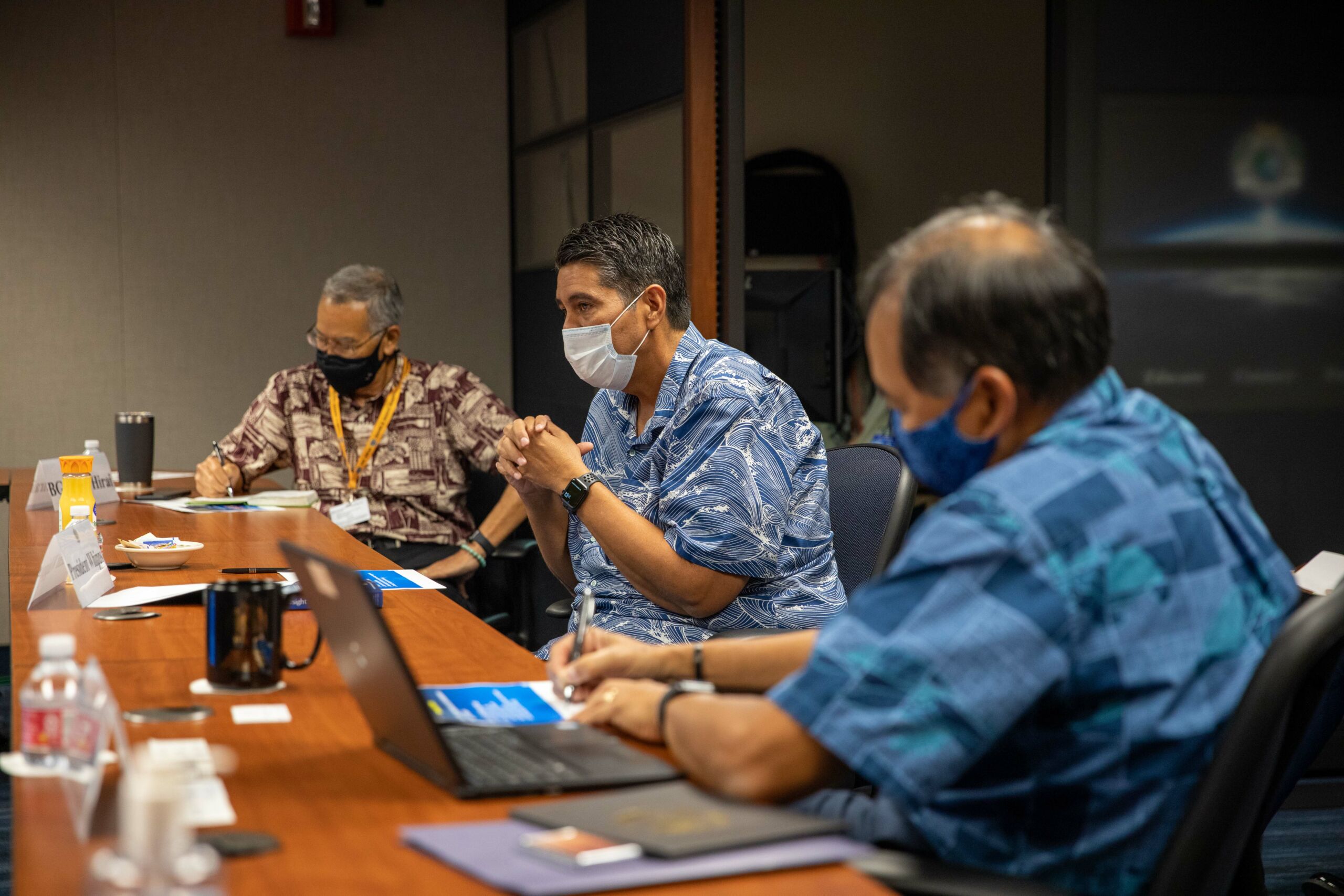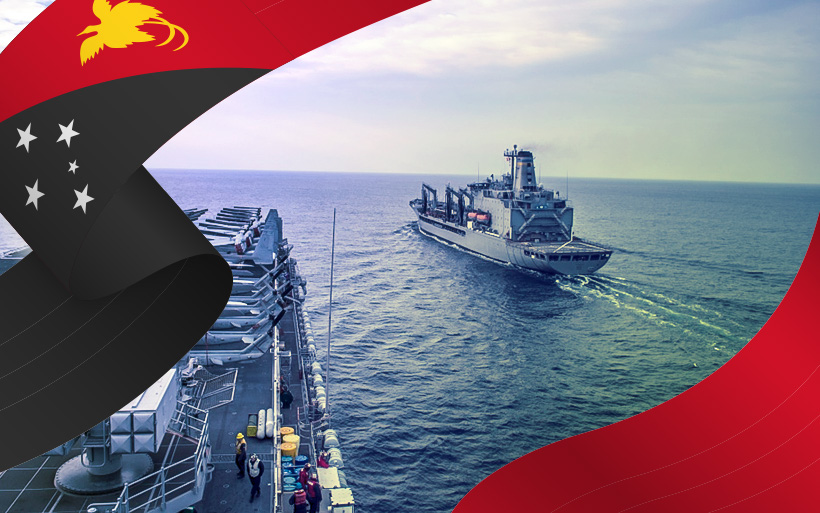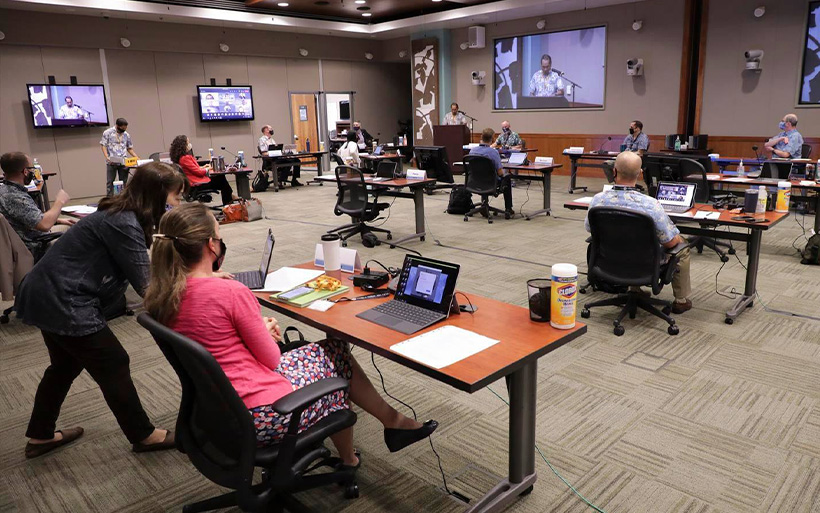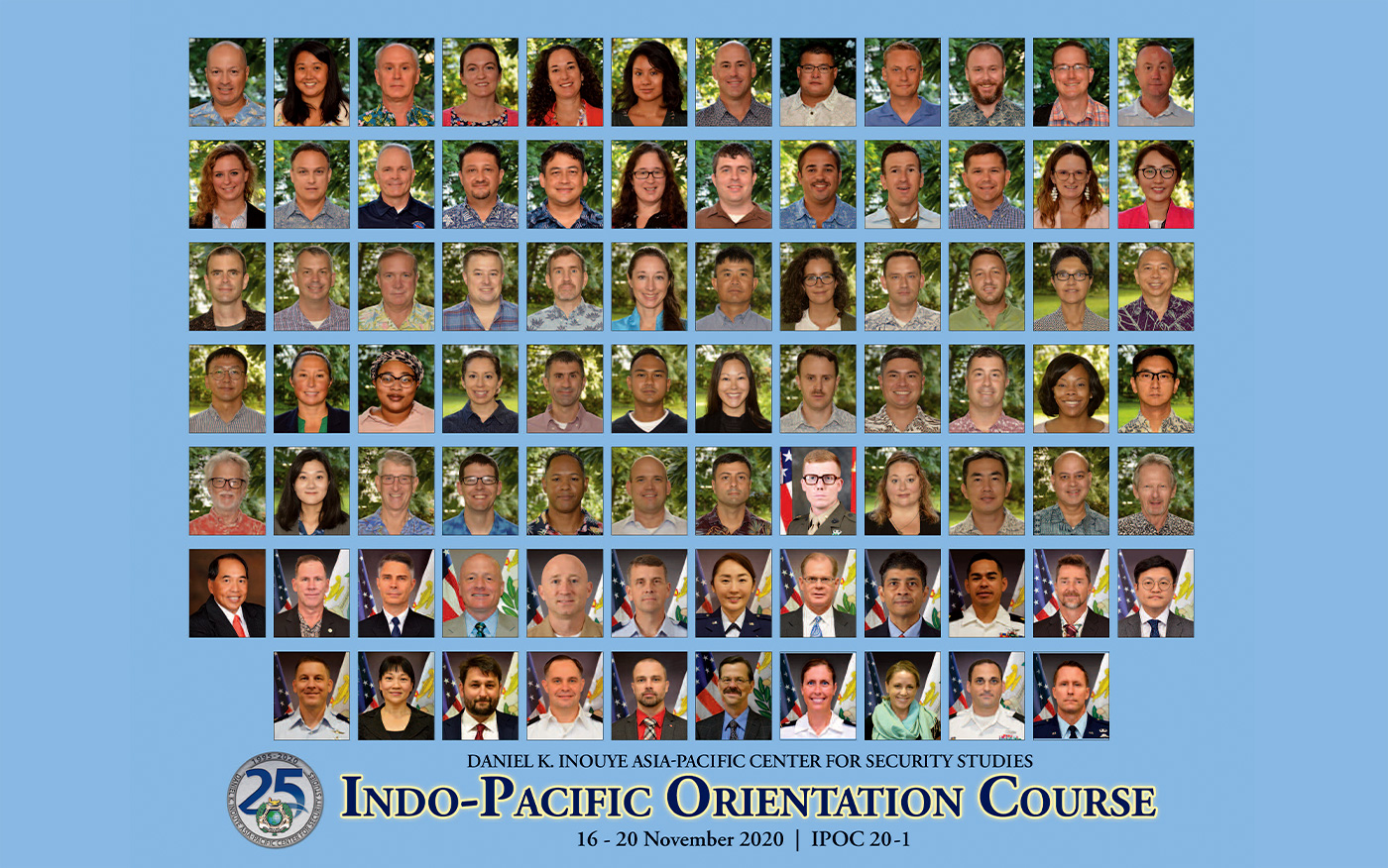President of Palau Visits DKI APCSS
President of Palau Surangel Whipps, Jr., and his delegation, visited the Daniel K. Inouye Asia-Pacific Center for Security Studies to discuss policies and issues pertaining to the Indo-Pacific region, Aug. 2, 2021. Pictured from (L-R) Ms. Lauren Henry, senior legal counsel for the office of the president; Ms. Landisang Kotaro Chief of Staff; Mr. Kerai Mariur, former Palau vice president; Mr. Henry Rector, DKI APCSS senior diplomatic advisor; Pres. Whipps; DKI APCSS Director Pete Gumataotao; Mr. Mengkur Rechelulk, House of Delegates; and Ms. Jennifer Anson, National Security Coordinator. For the second time in as many weeks, the Daniel K. [...]















